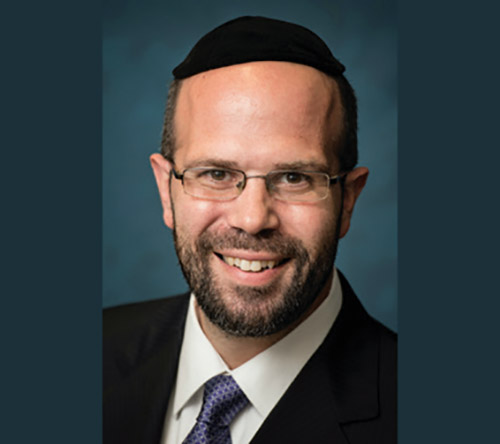
In a few short weeks, Jews all over the world will unite in celebrating the annual completion of the Torah-reading cycle. Communities, families and individuals will participate in a range of communal festivities, including singing, dancing, learning and dining. For many centuries, Simchat Torah, the climax of the Tishrei season, has been observed with enthusiasm and spirit, as many maintain a deep appreciation for the holiday;s extraordinary potential and opportunity.
More recently, Simchat Torah has become a day marked by new features and trends, which, at times, lack the sacred qualities of our more established traditions. One such example is the popularity of teen get-togethers, often labeled “reunions.” Large numbers of teens, from different communities of origin,
gather together to spend the 48-hour holiday in each other’s company. These gatherings, some organized while others not, have become so commonplace that, for many of our teens, Simchat Torah reunions have become a defining feature of the holiday. For many, in fact, it is not a question of if one will be going away for Simchat Torah; the only questions are where, with whom and how will you be getting there.
I can certainly appreciate the appeal of this model, particularly as Simchat Torah comes at the conclusion of a long holiday season. Spending the last days of Yom Tov with friends, while taking a small break from family, is understandably attractive and easily relatable. Furthermore, for teens who may be seeking opportunities to sing and dance in a high-energy environment, they will more likely achieve a lively and spirited experience if they stick together.
While some members of host communities have expressed their pleasure in receiving a large influx of young guests, these gatherings often attract unanticipated trouble and unwanted attention. Those shuls who have sought to protect themselves from negative exposure, risk and liability have attempted to restrict “nonparticipating” teens (as they choose to define) from their premises. While their efforts may or may not succeed in allowing them to protect their institutional interests, these measures have not been successful in reducing the frequency nor the impact of troubling incidents, which have, at times, included criminal behaviors and life-threatening emergencies. Rather than occupy local shuls, groups of teens will enjoy each other’s company in the streets, local parks and often in private homes. In recent years, many of our yeshiva high schools have sent written communications to parents in advance of Simchat Torah, alerting them to the potential risks their children may encounter over the holiday.
Yet, despite these sincere efforts to educate and alert parents, a sizable (and likely growing) number of our teenagers continue to participate in self-planned gatherings and extemporaneous activities. Of greatest concern is the fact that these gatherings often lack adequate supervision, if there is any supervision at all. Not surprisingly, many teenagers find themselves facing challenges and temptations they are not prepared, capable or perhaps committed to properly and responsibly managing As a result, there have been many reported situations in which teens casually observe or actively participate in dangerous behaviors they were never personally pursuing. These activities, which often include alcohol consumption and drug use, consistently occur in the absence of sufficient adult supervision.
Which brings me to the point of this message.
Parents, please parent your children. Although teenagers are transitioning into adulthood, they do not yet possess the emotional nor psycho-physiological capabilities to properly handle many challenging situations independently. It is a parents’ role and responsibility to provide or arrange for supervision when needed. To be clear, this is not a call for 24-hour parental surveillance. I am a strong believer that parents should allow their teenagers to experience opportunities of independence, at times completely withdrawing themselves and allowing their children to discover, often through trial and error, how to become responsible adults. No, I do not believe that it is appropriate for parents to track their teenagers’ every move, nor to listen in on their conversations. But to allow groups of teenagers to spend 48 hours (or 24, or 12, or even six, for that matter) in an inadequately supervised setting is a gross and negligent failure of parents—not of the schools, shuls nor summer camps. Toeing the line with teenagers can be enormously challenging, particularly when our kids perceive that “all” their friends do “whatever they want.” Regardless, though, of how our kids respond, allowing them to participate in unsupervised gatherings/events/parties/reunions is a complete and total abdication of parents’ most sacred and primary responsibility: to protect one’s children from harm. Could there possibly be a more important halachic, moral and rational responsibility?
As we prepare to celebrate Simchat Torah, let us commit, collectively and individually, to act as responsible parents. Regardless of when you are reading this, it is not too late to insist that your teenager’s social activities be properly supervised. Regardless of where your teenager was last Simchat Torah, it is not too late to insist upon an itinerary that is transparent, reasonable and appropriate. Regardless of what sort of parenting your teenager is accustomed to, it is not too late to insist upon basic norms of safety and accountability. Let us please commit together to protect and safeguard the most precious gifts with which we have been entrusted: our children.
By Rabbi Larry Rothwachs











